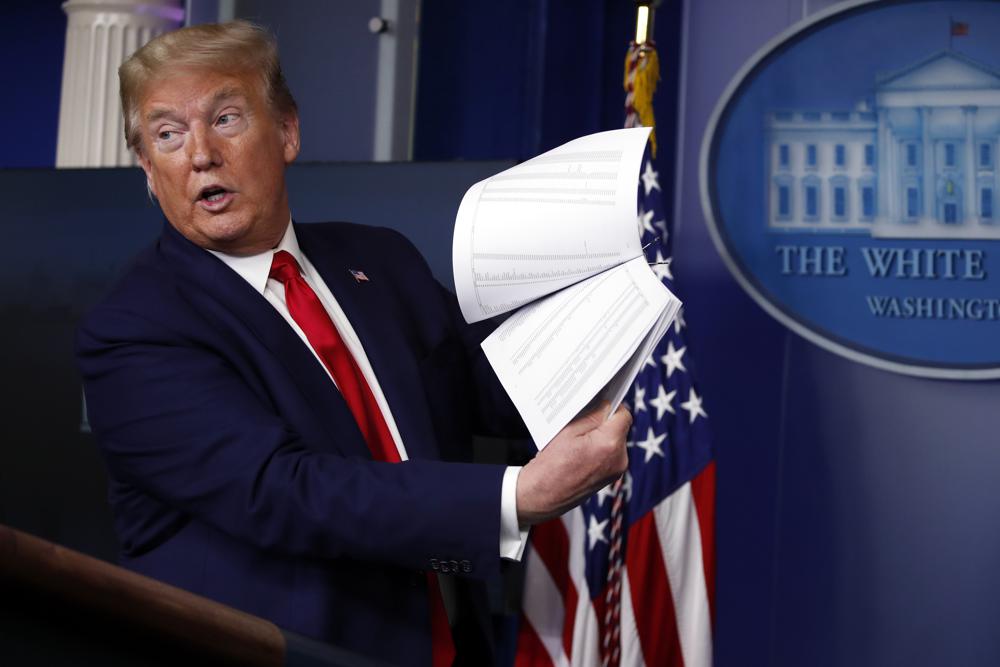Revelations of a roughly eight-hour gap in official records of then-President Donald Trump’s phone calls on the day of last year’s insurrection at the U.S. Capitol are raising fresh questions about the diligence — or lack thereof — of his record keeping.
The committee investigating the Jan. 6, 2021, riot has identified a gap in records that stretches a little after 11 a.m. to about 7 p.m. that day and involves White House calls, according to two people familiar with the matter.
Trump didn’t comment Tuesday, but attention surrounding the gap comes alongside a separate potential legal and political headache for the Republican ex-president — the recovery earlier this year of 15 boxes, including records containing classified information from Trump’s White House tenure, from his Mar-a-Lago vacation home in Florida.
A look at how the law regards presidential records:
WHAT IS THE PRESIDENTIAL RECORDS ACT?
The 1978 law requires the preservation of White House documents as property of the U.S. government.
The law was passed in the aftermath of the Watergate scandal, when a collection of secret tapes that President Richard Nixon had considered destroying played a defining role. The tapes revealed that Nixon tried to cover up the bungled burglary of Democratic National Committee headquarters. He chose to resign rather than face impeachment and removal from office.
HOW MIGHT THAT APPLY HERE?
In theory, the law would require the preservation of emails, text messages and phone records — no matter the device used for the communication, said presidential historian Lindsay Chervinsky.
The problem is, there’s no real mechanism to enforce the law, and there’s also never been a case where a former commander in chief has been punished for violating the Presidential Records Act. The statute by definition depends on the goodwill of presidents and their staff to police their own record keeping.
“It does require a certain element of good faith and sort of an honor system, and when that crumbles, you can see the limitations,” Chervinsky said.
Even so, the Jan. 6 committee is investigating the gap as it works to piece together Trump’s communications before and during the insurrection, when pro-Trump rioters stormed the U.S. Capitol to prevent Congress from certifying Democrat Joe Biden’s 2020 presidential election victory.
House investigators are looking at whether Trump was communicating during that time through other means, possibly through personal cellphones or some other type of communication — such as a phone passed to him by an aide.
HAS TRUMP FACED PRIOR ATTENTION OVER HIS RECORD KEEPING?
In a word, yes. After it was revealed that Trump had taken boxes of classified materials with him to Mar-a-Lago, House lawmakers opened an investigation and the National Archives and Records Administration revealed that it had asked the Justice Department to look into the matter.
Asked about the issue, Attorney General Merrick Garland has said only that the Justice Department will do what it always does — evaluate the facts and the law “and take it from there.”
(AP)












3 Responses
Most likely, when asked about the missing records, the immoral lying adulterer started talking about windmills
The article tries to make it sound as if the President personally keeps such records – as if the President personally has his finger on the erase button. This is not Clinton who had her own e-mail server in her own basement. Neither is this the 1970’s where the recordings of Nixon was NOT a legally required system – where the entire recording was a personal request by Nixon (and his predecessor) with his hand on the button.
Since when does Trump care about legal requirements?